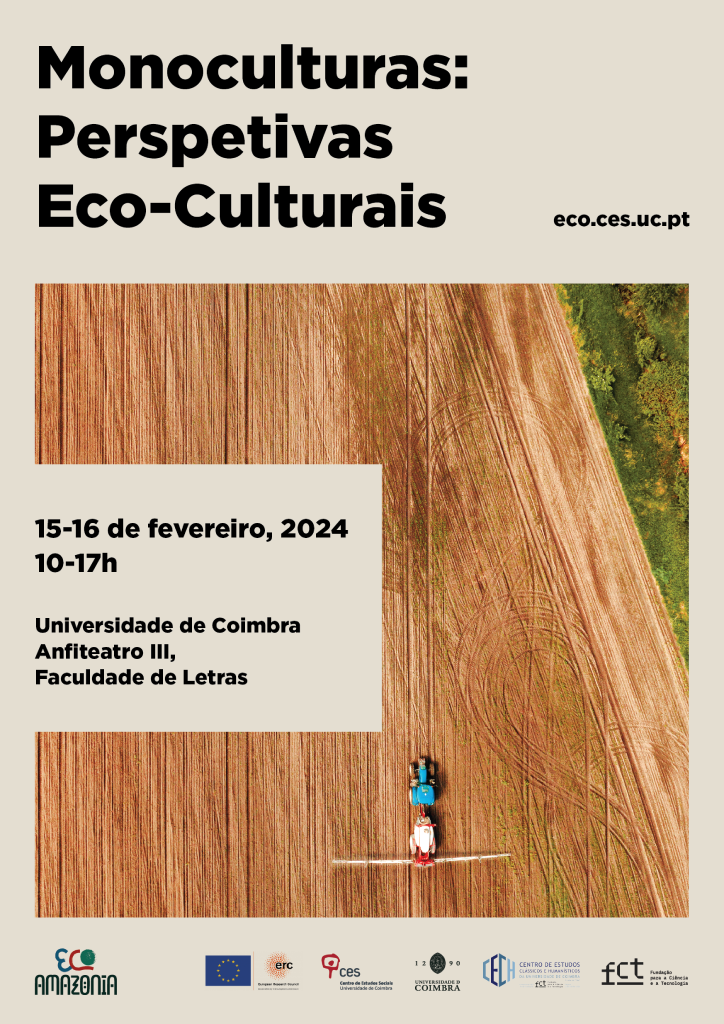Colloquium
Monocultures
February 15 and 16, 2024, 10h00
Amphitheatre III, Faculty of Arts and Humanities + Online
The Monocultures Congress aims to bring together experts from the natural, social and human sciences to reflect on the problem of monocultures from a global eco-cultural perspective, exploring connection patterns between culture and nature across epistemological and disciplinary boundaries. The development over the last 50 years of sciences such as Ecology, Biosemiotics and, more recently, fields of analysis such as Ecocriticism and Environmental Humanities have helped to overcome old divisions between culture and nature, mind and body, human and non-human, text and world. Today, we are more aware of the instability inherent in the division between environments external and internal to the human being. This ambiguity is reflected in the word “culture” itself, whose meaning refers to both physical and mental landscapes, to a continuous process of creative transformation of what we have come to call “nature”, and to the creation of conceptual, literary and artistic works that also take the natural world as their starting point.
It is precisely the evolutionary and creative dynamism of nature-culture ecosystems that monocultures oppose as uniform, redundant semiotic fields that inhibit (bio)diversity. Artificially created for purely economic purposes, monocultures represent a human manipulation of nature against nature itself, affecting the quality of life of animal, plant and human species and generating social injustice, isolation, exclusion, disorientation and loss of connection to the territory. In recent years, an intense public debate has come to light around this issue, which can be broadly reduced to two opposing points of view: on the one hand, the defenders of the environment and of human and non-human species, who seek to highlight the damage that single-cropping practices do to biodiversity and environmental justice; on the other hand, the rhetoric of entrepreneurs, producers and their political supporters, who point to economic values such as the creation of wealth and jobs, the promotion of agricultural and forestry activity, the rational use of land, the balance of trade, etc. All over the world, but more so in countries with greater dependence on large multinational industries, as Vandana Shiva, among other researchers, have rightly denounced, monocultures are imposed on peoples based on the argument of economic survival and food security.
At a time of environmental crisis and climate change, this colloquium aims to consider the phenomenon of monocultures on a global scale, discussing their ecological and cultural-social impact on the planet. Thus, in addition to empirical ecological knowledge, it is essential to understand the impact of single-species crops on the human and non-human societies they affect. The colloquium’s speakers will suggest a series of intersecting perspectives that will awaken us to the environmental problems associated with the monoculture exploitation of plants and animals and the predominance of monocultures of the mind in a globalised world.
Free entrance | More information available soon


